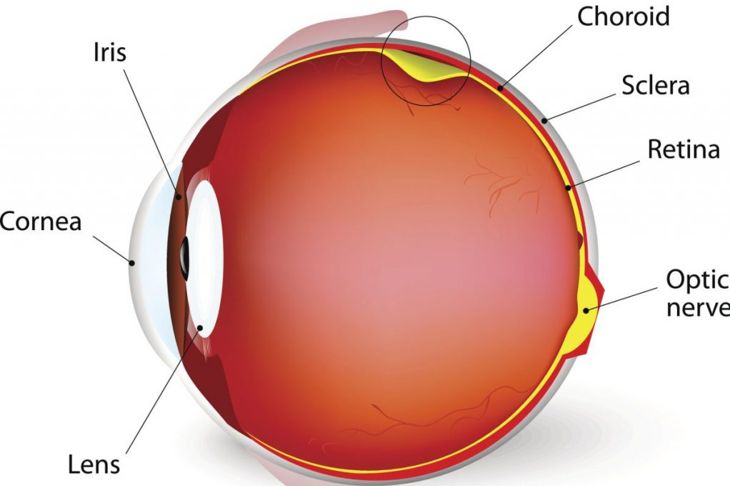It is no wonder that we feel concern and anxiety when we experience vision problems, such as blurred vision. Vision is an important sense, but vision problems are not uncommon, and most are quite easy to treat. Nonetheless, anyone who notices a change in their vision should see an eye doctor to determine the cause and receive treatment to avoid complications.
Eye Strain and Blurred Vision
Hours of staring at a cell phone, computer, or television screen can cause eye strain, one of the most common causes of blurred vision. Reading small print for long periods can also lead to strain and blurry sight. Watery or tired eyes and dull aches often accompany blurred vision due to eye strain. The symptoms are usually short-lived, and resting the eyes for a few hours should bring relief.
Cataracts
Cataracts are a common cause of blurred vision, occurring when the normally clear lens of the eye gradually becomes cloudy and discolored. The cloudiness obstructs the passage of light through the lens. While cataracts generally affect older people, they can be present at birth. Other risk factors for developing cataracts include injury to the eye, illness, lifestyle factors such as smoking, too much exposure to the sun, diet, and excess consumption of alcohol.
Refractive Errors
Refractive errors happen when the eye is unable to bend light rays properly. As a result, a clear image cannot be focused in the light-sensitive area of the eye. The primary refractive errors are shortsightedness, farsightedness, presbyopia, and astigmatism. Eyeglasses, contact lenses, or surgery can usually correct such problems. Blurring of the vision is often gradual but can be permanent.
Nerve and Brain Issues
Blurred vision can result from nerve and brain issues, even if the eye is otherwise healthy. When light strikes the retina, the optic nerve carries the signals to the brain, which deciphers them and forms images that we perceive as vision. Inflammation or compression of the optic nerve interferes with the signals that are carried to the brain and can result in blurred vision. Traumatic brain injury, brain tumor, stroke, and other problems involving the brain can cause blurry vision, as well.
Glaucoma
There are several types of glaucoma, but increased pressure within the eye is the primary cause, and this can lead to blurry vision. Increases in pressure damage the optic nerve, interfering with signals being carried to the brain. Glaucoma typically causes gradual changes in vision, which may be intermittent.
Migraines and Headaches
Throbbing headaches and migraines can affect vision. One of the first symptoms of a migraine is blurred vision or an “aura.” Blurred vision that accompanies a headache or migraine usually lasts no more than a couple of hours. Resting the eyes during a severe headache or migraine can ease the pain and vision issues during such an episode.
Toxins
Certain toxins, such as alcohol, can lead to blurred vision. This most commonly happens when one consumes alcohol in excess. In some cases, however, blurred vision can signal more serious poisoning or exposure to a toxin. Blurred vision that results from poisoning can lead to permanent blindness, even if treatment successfully eradicates the poison and the person regains their health.
Macular Degeneration
Macular degeneration involves the retina of the eye. The macula, located near the center of the retina, is responsible for clear, straight-ahead vision. There are two types of macular degeneration: wet and dry. The former develops when fluid and blood leak out into the macula tissue. Dry macular degeneration occurs when the tissue around the macula deteriorates. Central vision gradually decreases, and people may experience blurred spots. Both types worsen over time, though wet macular degeneration can start suddenly and quickly get worse.
Retina Problems
The innermost layer of the wall of the eye is the retina. This region contains light-receptive sensors that send nerve impulses to the brain. Retina problems result in vision problems, including blurriness. An impact to the head can lead to retinal detachment when the retinal layers tear away from the underlying layers responsible for supplying it with blood.
Uveitis and Iritis
The middle layer of the eye is the uvea. The iris is the colored part of the eye around the pupil and is part of the uvea. These structures can become inflamed as a result of injury, infection, or systemic disorder. Inflammation of the uvea and iris are called uveitis and iritis, respectively. Common symptoms include blurred vision and eye pain. The symptoms can come on suddenly and be very acute, intense, or they may be chronic.

 Home
Home Health
Health Diet & Nutrition
Diet & Nutrition Living Well
Living Well More
More




















